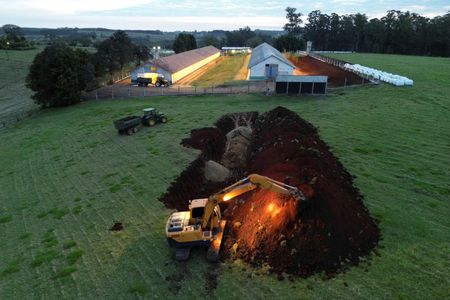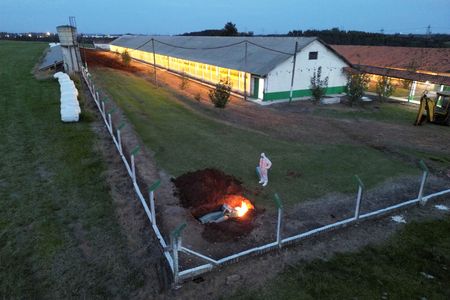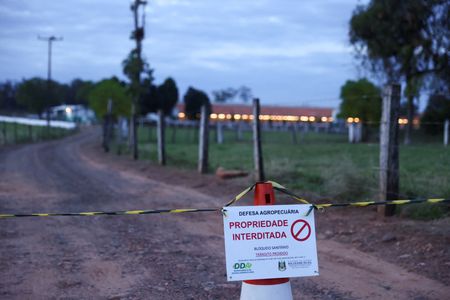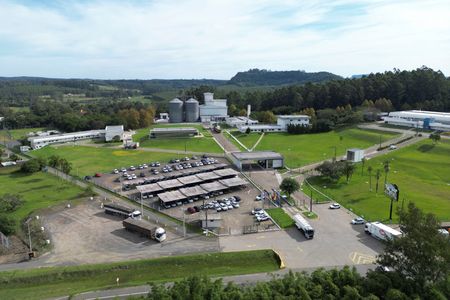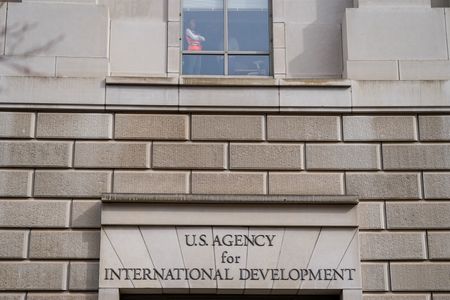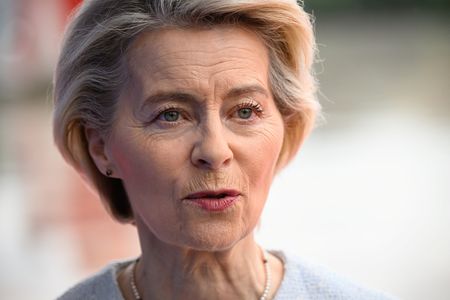By Isabel Teles, Ana Mano, Roberto Samora and Lisandra Paraguassu
SAO PAULO (Reuters) -Brazil, the world’s largest chicken exporter, confirmed its first outbreak of bird flu on a poultry farm on Friday, triggering protocols for a country-wide trade ban from top buyer China and state-wide restrictions for other major consumers.
The outbreak in southern Brazil was identified at a farm supplying Vibra Foods, a Brazilian operation backed by Tyson Foods, according to two people familiar with the matter.
Vibra and Tyson did not immediately respond to questions. Vibra has 15 processing plants in Brazil and exports to over 60 countries, according to its website.
Brazil exported some $10 billion of chicken meat in 2024, accounting for about 35% of global trade. Much of that came from meat processors BRF and JBS, which ship to some 150 countries.
China, Japan, Saudi Arabia and the United Arab Emirates are among the main destinations for Brazil’s chicken exports.
Brazilian Agriculture Minister Carlos Favaro said on Friday that under existing protocols, countries including China, the European Union and South Korea would ban poultry imports from Brazil for 60 days.
Argentina said it was suspending imports of all Brazilian poultry products until its neighbor is found free of bird flu.
Favaro said newly revised protocols with major buyers such as Japan, UAE and Saudi Arabia provide for restrictions only on shipments from the affected state and, eventually, just the municipality in question.
The outbreak occurred in the city of Montenegro in Brazil’s southernmost state of Rio Grande do Sul, the farm ministry said. The state accounts for 15% of Brazilian poultry production and exports, national pork and poultry group ABPA said in July 2024.
BRF has five processing plants operating in the state. JBS has also invested in local chicken processing plants under its Seara brand.
State officials said the outbreak of H5N1 bird flu is already responsible for the death of 17,000 farm chickens, either directly from the disease or due to cautionary culling.
Veterinary officials are isolating the area of the outbreak in Montenegro and hunting for more cases in an initial 10 km (6 miles) radius, the state agricultural secretariat said.
Favaro, the farm minister, said Brazil was working to contain the outbreak and negotiate a loosening of trade restrictions faster than the two months agreed in protocols.
“We can calm the market and consumers, showing that other parts of the country have no risk of outbreak … and with that, get some flexibility from those countries with a total ban,” he said in a telephone interview.
Brazil, which exported more than 5 million metric tons of chicken products last year, first confirmed outbreaks of the highly pathogenic avian flu among wild birds in May 2023, but had not registered a case on a commercial farm until Friday.
Chicken products shipped by Thursday will not be affected by any trade restrictions, the minister said.
US FLOCK DEVASTATED
Bird flu has swept through the U.S. poultry industry since 2022, killing around 170 million chickens, turkeys and other birds, while severely affecting production of meat and eggs.
Bird flu has also infected nearly 70 people in the U.S., with one death, since 2024. Most of those infections have been among farmworkers exposed to infected poultry or cows.
The further spread of the disease raises the risk that bird flu could become more transmissible to humans.
By contrast, Argentina was able to isolate a February 2023 outbreak and start resuming exports slowly the next month.
“All necessary measures to control the situation were quickly adopted, and the situation is under control and being monitored by government agencies,” industry group ABPA said in a statement.
JBS referred questions about the outbreak to ABPA.
BRF CEO Miguel Gularte told analysts on an earnings call that he was confident Brazilian health protocols were robust and the situation would be quickly overcome.
Bird flu is not transmitted through the consumption of poultry meat or eggs, the Agriculture Ministry said in a statement.
“The Brazilian and world population can rest assured about the safety of inspected products, and there are no restrictions on their consumption,” the ministry said.
(Reporting by Isabel Teles, Ana Mano and Roberto Samora; Additional reporting by Lisandra Paraguassu, Ella Cao, Nigel Hunt and Tom Polansek; Editing by Brad Haynes, Mark Potter, Barbara Lewis and Aurora Ellis)

